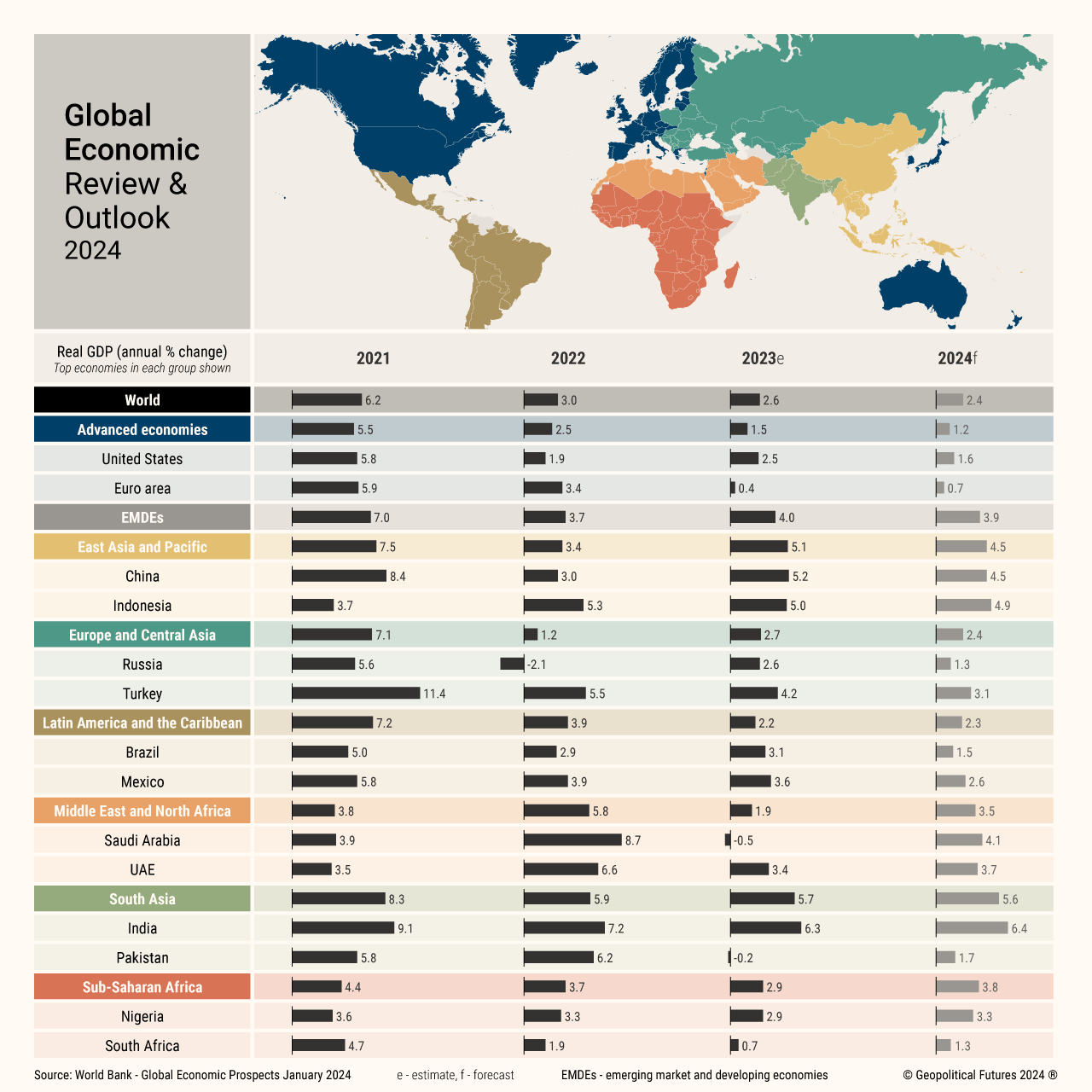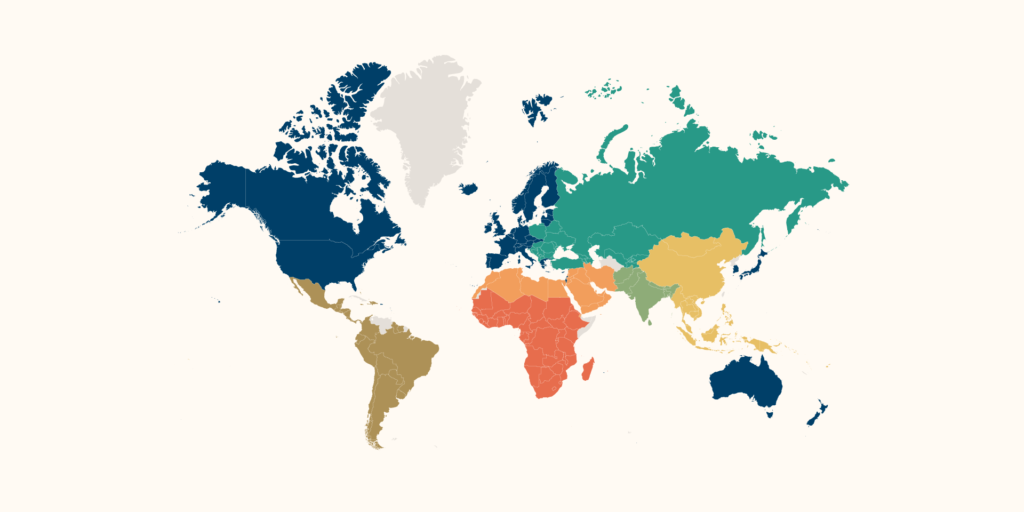Open as PDF


(Click to enlarge)
The global economy was surprisingly resilient in 2023, exceeding expectations with positive growth in all regions. This resilience points to an encouraging start to 2024, especially when compared to previous years. In particular, the risk of a global recession has been reduced, thanks to strict monetary policies implemented to control inflation.
However, despite this optimistic start, international organizations expect global economic momentum to slow in 2024. At the recent World Economic Forum in Davos, discussion centered on the World Bank's forecasts and analysis, particularly its statement on five-year global economic growth. The period to 2024 is expected to be the weakest in 30 years. Although the global economy has so far managed to avoid recession, rising geopolitical tensions threaten to create new obstacles. The ongoing fight against inflation, combined with the continuation of the Russian-Ukrainian war, is already placing significant strain on the global economic framework. Further complicating matters are instability in the Middle East and the evolving dynamics of global supply chains, which could negatively impact economic activity around the world.
![]()
![]()
Geopolitical Futures (GPF) was founded in 2015 by George Friedman, an international strategist and author of The Storm Before the Calm and The Next 100 Years. Rather than being ideological, GPF uses geopolitics (the political, economic, military, and geographic aspects on which nations are based) to analyze the world and predict the future.



